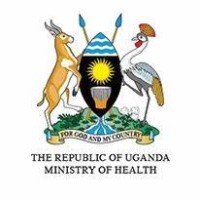
MoH Uganda- Department of National Health Laboratory and Diagnostic Services(NHLDS)
The National Health Laboratory and Diagnostics Services (NHLDS) is a department of the Ministry of Health (MOH) responsible for; 1. Providing Stewardship and Coordination of Laboratory Services in Uganda: We coordinate a tiered network comprising of National and Regional referral Laboratories, General Hospital Laboratories, HCIV and HCIII Laboratories as well as Point of Contact testing outside designated Laboratories. 2. To provide reference testing services to support both Public Health and Clinical Care: Health laboratories in the country generate information for timely and accurate diagnosis of communicable diseases, including malaria, HIV/AIDS, tuberculosis and, more recently, Covid-19 and Ebola Ev among others; as well as non-communicable diseases such as trauma, diabetes, cardiovascular diseases and cancers. 3. We also monitor efficacy and potential toxicity of therapy, in addition to protecting the health of the population through disease surveillance, and provision of essential data for health systems planning as well as disease prevention and control. 4. NHLDS also spear heads policy development for the National Health Laboratory System in close coordination with a range of partners and stakeholders. It also coordinates the handling and transportation of specimens to reference testing centres for various programs, including HIV/AIDS and Tuberculosis. Vision ‘Quality Laboratory services available and accessible to all people in Uganda’ Mission To provide Quality, Cost-effective and Sustainable Health Laboratory Services to the people in Uganda and to support health care delivery Regionally and Internationally. Core Values • Quality • Accessibility • Confidentiality • Transparency • Accountability NHLDS Reference laboratories: 1. Central Public Health Laboratories (CPHL) 2. National Microbiology Reference Laboratory (NMRL) 3. National TB Reference Laboratory (NTRL)






